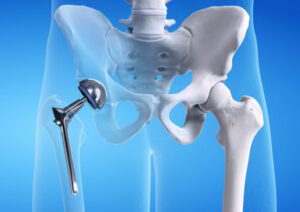Hip Fracture Symptoms

By: Assoc. Dr. ancestor
Hip Fracture Symptoms
It is a condition in which one or more of the bones in the hip area are broken. It usually occurs in elderly individuals as a result of a fall and can cause serious pain, swelling and limitation of movement. Treatment usually requires surgery and the rehabilitation process can be long. hip fracture, It can significantly affect quality of life and cause complications.
What are the Symptoms of Hip Fracture?
Severe and sudden pain is usually felt. This pain may be concentrated in the hip area and increase with movement. There is limitation in hip movements. They especially have difficulty pulling their legs to their sides or over them. hip fracture People with this condition may tend to lose their balance and have difficulty walking. In some cases, walking may be nearly impossible. Swelling and bruising are usually observed around the hip. These symptoms may vary depending on the severity of the fracture.
People experiencing this condition may have difficulty extending their legs to the floor. This movement often causes pain. The fracture area may often point abnormally outwards or inwards. This may vary depending on the type and severity of the fracture. hip fracture When in doubt, it is important to consult a doctor without delay. Your doctor will perform the necessary examinations and recommend the appropriate treatment.
Hip Fracture Risk Factors

People with a low body mass index often have lower bone density, which may increase the risk. Smoking and excessive alcohol consumption can reduce bone density and increase risk. Some health problems, such as diabetes, Parkinson's disease, and rheumatoid arthritis, can affect bone health. This may increase the risk. Certain medications, such as long-term corticosteroids, can reduce bone density. It may increase the risk. Hip fracture risk factors It can be a complex combination and differ for each individual. However, the factors mentioned are often important factors that increase the risk.
Hip Fracture Treatment Methods
Some fractures require surgical intervention. This depends on the complexity of the fracture and the general health of the patient. Surgical intervention involves the use of implants such as plates, nails, and screws to stabilize the fracture. Fractures that occur due to bone weakness such as aging and osteoporosis may require total hip replacement. This is often preferred when healing of the fracture is not possible. As part of the treatment, patients must have bed rest for a certain period of time. It is also important not to put weight on the area where the fracture occurs. This may aid the healing process. Additionally, restrictions on walking and other activities may also support recovery. hip fracture Afterwards, physical therapy is often part of the recovery process.
Physiotherapists design exercise programs to restore muscle strength and flexibility. This supports the patient's functional recovery and return to activities of daily living. Fractures often cause severe pain. Doctors often prescribe medications to manage pain. This may include painkillers, anti-inflammatory medications, and opioids as needed. Healthy nutrition is important during the recovery process. Adequate calcium and vitamin D intake supports the healing process of bones. Doctors often offer nutritional recommendations during this process. These fractures are serious injuries and the treatment process can be long and complex. The treatment plan is often personalized based on the person's age, general health, and the characteristics of the fracture. Therefore, a hip fracture It is important that the treatment plan is determined by a specialist doctor.





